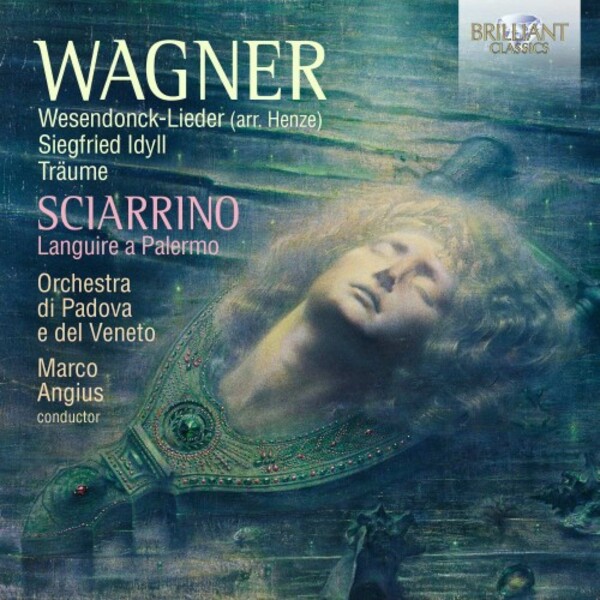
Wagner - Wesendonck-Lieder, Siegfried Idyll; Sciarrino - Languire a Palermo
£9.45
In stock - available for despatch within 1 working day
Despatch Information
This despatch estimate is based on information from both our own stock and the UK supplier's stock.
If ordering multiple items, we will aim to send everything together so the longest despatch estimate will apply to the complete order.
If you would rather receive certain items more quickly, please place them on a separate order.
If any unexpected delays occur, we will keep you informed of progress via email and not allow other items on the order to be held up.
If you would prefer to receive everything together regardless of any delay, please let us know via email.
Pre-orders will be despatched as close as possible to the release date.
Label: Brilliant Classics
Cat No: 96119
Format: CD
Number of Discs: 1
Release Date: 13th August 2021
Contents
Works
Languire a Palermo (Wagner, melodie ultime)Siegfried Idyll, WWV103
Traume for violin and orchestra, WWV91b
Wesendonck-Lieder (5) (arr. Hans Werner Henze)
Artists
Sara Mingardo (contralto)Massimo Quarta (violin)
Orchestra di Padova e del Veneto
Conductor
Marco AngiusWorks
Languire a Palermo (Wagner, melodie ultime)Siegfried Idyll, WWV103
Traume for violin and orchestra, WWV91b
Wesendonck-Lieder (5) (arr. Hans Werner Henze)
Artists
Sara Mingardo (contralto)Massimo Quarta (violin)
Orchestra di Padova e del Veneto
Conductor
Marco AngiusAbout
Hanz Werner Henze’s orchestration of Wagner’s Wesendonck Lieder highlights the relationship between the words and the sounds. The agile yet intense scoring for ten wind instruments, harp and small string ensemble appears to be Henze’s way of finding an alternative to the original piano without taking the cycle outside the realm of chamber music or altering the lieder’s original image.
Siegfried and Brünnhilde sing from the depths of their hearts returns here with the grace of a child’s nursery.
Salvatore Sciarrino’s Languire a Palermo (Languishing in Palermo), composed in 2018, is predominantly built around the melody Tempo di Porazzi, a fragment composed by Wagner during a visit to Sicily in late 1881 and early 1882. Sciarrino describes the ‘allure of a distant unaccompanied melody, played by someone for their own benefit and entrusted to the wind’ and hypothesises that it may correspond ‘to the sounds in Sicily that stimulate and amaze the ears...Mediterranean charm gushes from the throat of every street vendor.’
Error on this page? Let us know here
Need more information on this product? Click here